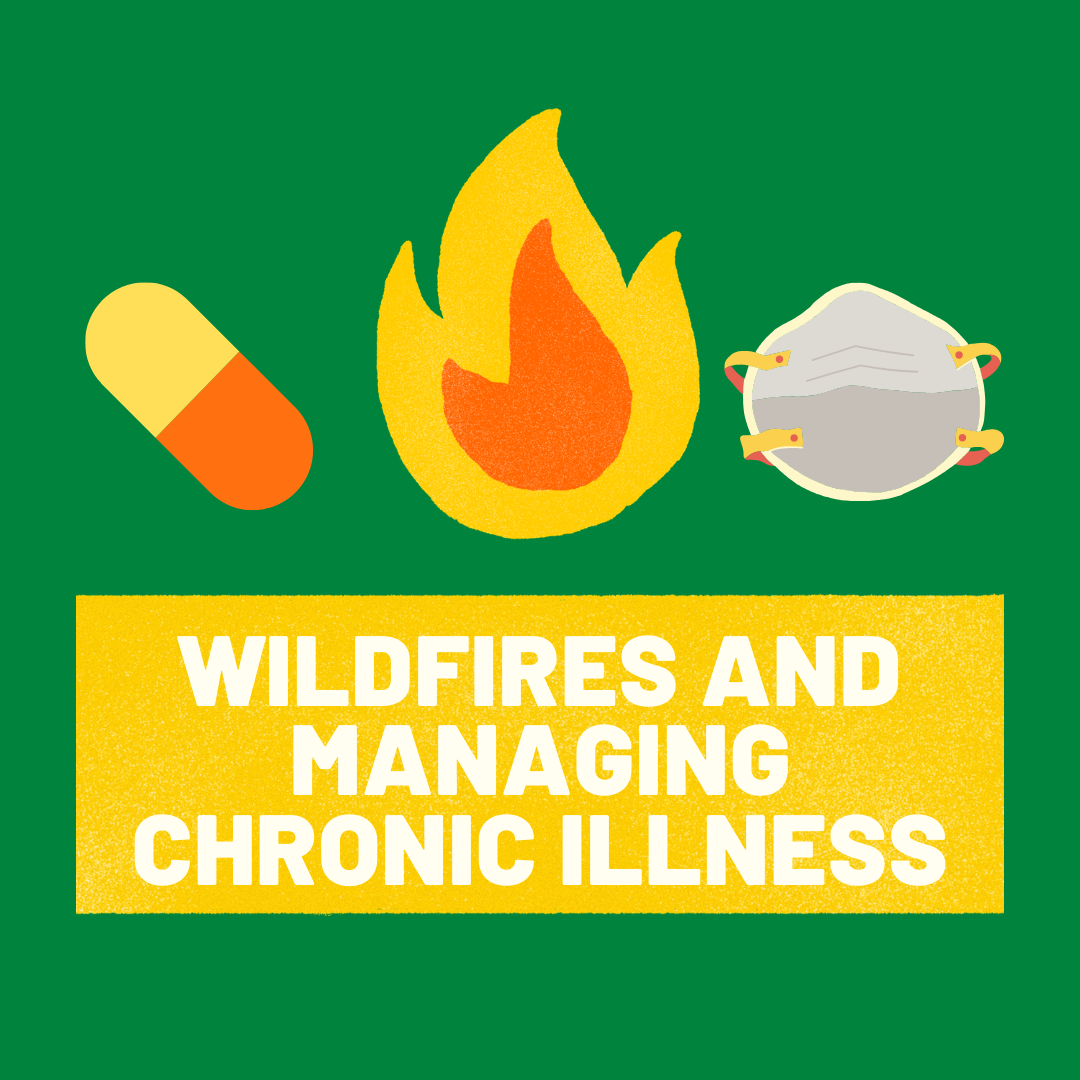Preparing for Wildfire Season While Living with a Chronic Condition
June 19, 2020

June 19, 2020
If you are living with a chronic condition, it is likely that you have experienced changes to your healthcare during the COVID-19 pandemic and have had to make adjustments to managing your illness. For Californians, the imminent wildfire season poses an additional threat to health and safety.
In addition to the physical dangers of proximity to or evacuating from a wildfire in your area, these disasters can have a profound effect on your ability to access healthcare when you need it most. Wildfires can threaten the very infrastructure of health centers nearby including hospitals, doctor’s offices, and treatment centers. After the devastating Camp Fire in November 2018, parts of local Feather Ridge hospital burned and patients were left to travel 30 or more miles for acute care. Wildfires can also cause an interruption in preventative care like delays in screenings, seeing a specialist due to closures, postponing treatments or surgeries that improve quality of life, and taking medications that keep your condition well-managed.
However, there are steps you can take to ensure you and your family are protected in case of emergency.
Firstly, be sure you have a plan in place that you coordinate with your household members and healthcare team. Consider where you could evacuate to, safe escape routes, and a plan for your pets. Designate one person as a point of contact for your family to maintain communication and keep a portable radio nearby so you can stay updated. You can also prepare an emergency supply kit with any prescriptions, supplements, or medical equipment you need regularly, an extra set of eyeglasses, a first aid kit, sanitation supplies, important documents, and non-perishable food and water that is acceptable if you are on a special diet for your health condition.
If possible, you may want to see if you are able to obtain a backup supply of your prescription medications or if you can get an extended supply ahead of time. If your pharmacy closes in an emergency, you can visit rxopen.org or healthcareready.org to find out which other pharmacies are open in your area.
Smoke and poor air quality from proximity to a wildfire may exacerbate certain chronic conditions and can cause harm. The California Department of Public Health says “Smoke from wildfires can cause eye and respiratory irritation and some more serious reactions, including reduced lung function, bronchitis and making asthma symptoms worse … Those with existing respiratory, lung or heart conditions should limit their exposure by staying indoors.” In addition to staying home when possible, not only is it essential to have face masks at home during the pandemic, but it is especially crucial for people with chronic conditions who live in an area at risk of wildfires.
Wildfires, especially during the COVID-19 pandemic, can be incredibly stressful and affect your emotional or mental health. There are resources to help restore emotional and mental well-being and manage stress. You can call the Disaster Distress Helpline at 1-800-985-5990 or text TalkWithUs to 66746. You can call 211 or visit their website to learn more about local resources. Here are some other ideas to help you cope during a stressful time.
Be sure to sign up for telehealth with your primary care physician and any other members of your care team. Telehealth, while not always an appropriate substitute, can provide a valuable opportunity to continue vital communication with your doctor and prevent your chronic condition from getting worst during a crisis. Have the phone numbers of any centers you may need to get in touch with during an emergency.
In preparation or sometimes as a result of wildfires, power outages may occur. You can prepare for this situation by evaluating your regimen and determining how your health could be affected by a lasting power outage. If you regularly use medical equipment at home that requires electricity, it may be a good idea to look into alternative sources of energy like a generator, or even a solar-powered portable charger. Here are some things to think about when evaluating your risk:
Additionally, there are many useful resources available through California Department of Forestry and Fire Protection (Cal Fire) and other organizations. Check out readyforwildfire.org for everything you need to consider both in preparation of and during an emergency. You can also get updates through the app or sign up for text message updates here.